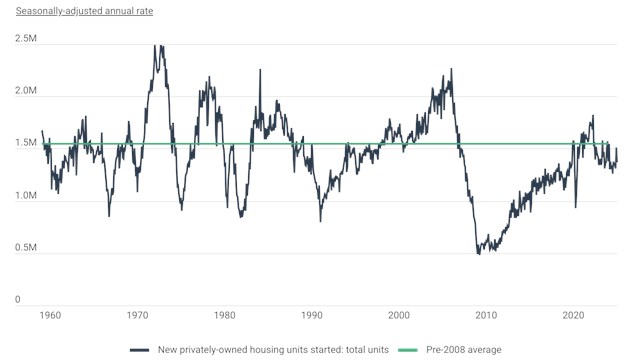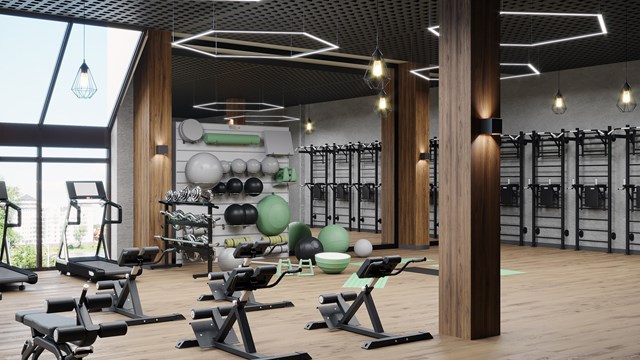It's not uncommon for co-op and condo buildings to lease that empty space on their ground floor to commercial tenants - usually restaurants, retail stores, or small professional offices. While commercial tenants' rent can add to a building's revenue, issues with noise, traffic, and the 80/20 rule can sometimes make the relationship complicated.
The list of potential tenants that make good neighbors is relatively short. That can become somewhat of a potential problem with condos, because, according to Alan Fried, a partner with Ganfer & Shore LLP, a New York-based law firm specializing in both commercial and residential real estate, "In condos, the board rarely has anything to say about the commercial tenants. Usually, the commercial owners can mostly do what they want without getting permission from the residential board."
A co-op, which can be more selective, should beware of certain tenants - particularly restaurants, according to Fried. "Restaurants usually don't make good neighbors," he claims. "You want to be very careful because of the obvious mice, vermin and odor issues." Dry cleaners, which deal with chemicals and odors, also top the co-ops' least-wanted list. Fried says banks, which keep regular hours, are often considered the most desirable kind of commercial tenant.
However, adds Faith Consolo, vice chairman of Garrick-Aug Worldwide, a commercial space and leasing expert based in Manhattan, the reputation of tenants in the foodservice industry is changing. "The reason is you have better food tenants," she explains. "Years ago supermarkets were not desirable, but now there are higher-end markets."
High-end retail stores also make desirable tenants. "Putting aside the financial implications in terms of their ability to stay in business and pay rent, stationary stores, and probably drug stores, also are ideal," Fried says.
Problems arise, though, when customers start roaming through the lobby. "With traffic going through the lobby and up the elevators in the residential portion, it becomes difficult to provide security," Fried explains. "Once they come in, they're free to wander your building." He says that although most commercial spaces have street entrances, they could be located on a residential building's second floor.
"The biggest downside that some of the Class A buildings dislike is traffic - the wear and tear on the building and the disruption of what they feel is their quality of life," Consolo says, adding that restaurants or nightclubs - businesses that keep long, often noisy hours - are an especially hard sell to upper-end buildings.
Garages add another wrinkle to the tenant/board relationship. "Sometimes your commercial tenant will have a garage, which is great because it's convenient," Fried says. "But it's not great to have if their exhaust system isn't functioning properly and you get the fumes and odors or the sound of the garage door opening and closing at all hours of the night."
Consolo says some buildings prefer banks because "it brings life to the building. And to a co-op or condo, which is always concerned about collecting maintenance and common area charges, a bank is someone who they know is not going to disappoint them or be a drain on their bottom line."
Location is among the key factors that impact residents' perception of commercial tenants. "Somebody sitting right on top of the commercial space is more likely to have more of an impact than the penthouse 30 floors above," Fried says. "A number of people will shy away from a building that has any kind of restaurant in it "¦ because there are frequently problems."
Jeffrey Heidings, president of New York-based Siren Management Corp., says the commercial tenant "might only have an impact on the one unit on the floor directly above it. It's also location - how it's positioned with respect to the residential portion." He says it also depends on the nature of the establishment.
"There are people who will be put off from buying in an apartment building if they don't like what they see on the ground floor," Consolo adds. "Everything starts on the ground floor - it's your first perception of the building."
Commercial tenants are rarely the determining factor for a buyer however. "Usually they're looking to buy a particular apartment for a particular price, and 97 percent go through," Fried says. "Commercial space may be one of the considerations, but usually it's other factors as well."
Fried says the 80/20 rule, which states that 80 percent of a co-op's income must come from shareholder's fees and no more than 20 percent from commercial rent, is something many buildings use to their advantage.
Fried says some buildings set up separate corporations, and the co-op enters into the lease with their corporation for all the commercial space, which the corporation subleases. In that situation, Fried says, "you've got this income flowing into the corporation, but it doesn't necessarily flow up to the co-op, and of course that kind of setup has its own set of implications, because if the co-op owns the other corporation, the IRS could say this is all one entity."
"You have to qualify the tenant," Consolo advises. "Some tenants offer the highest rent, and they look good, but they have no financials."She recommends getting strong financials, a good security deposit, and giving them criteria for which to build an attractive store.
Even buildings with good financials can pose difficulty when it comes to 80/20 compliance. In that case, Heidings says, "you're not going to just throw away money because you're going to lose your tax deduction." He recommends structuring a deal that capitalizes the rent flow in the first year. For example, "instead of doing fifteen years at one hundred thousand, I'll capitalize ten years, a portion of it, and get a million dollars in the first year, lose my 80/20 for one year, and then take a diminished amount of money the rest of the time so that it restores 80/20," Heidings explains.
The building sets certain terms and conditions in the lease, but if those are broken, Heidings says, they are "reported to management, and management reports it to the board, and management takes steps to pursue the board directive." Prohibition of subletting and control over signage are two factors buildings are quite strict about, he says.
The board itself can do relatively little to mediate conflicts between commercial and residential tenants, especially in the case of a condo. "The board cannot mediate because it's an [involved] party," Fried explains. "The typical commercial lease does not provide for arbitration, and so when you've got a dispute you tend to end up in court."
In the case of a condo, "the only way the residential board is going to end up in court is if the tenant is violating a building code," Fried says. "The ability of a residential board to control commercial tenants is really quite limited."
Negotiating the actual lease and the terms therein can prove a daunting task when dealing with commercial clients. Consolo says because of that, "a co-op or condo today hires someone who specializes in retail to come in and give them guidelines that they will have in their leases before they lease to the tenant." She says some of those terms include signage, operating hours, and store design. "We set criteria so that whatever new store comes into the building, they will not only fit in the neighborhood but will be aesthetically right for the building and will be something people can be proud to come home to," Consolo explains.
Typically, a co-op will try to maintain control over several key factors. For instance, Fried says, "things like signage normally require the consent of the co-op, though their standards are usually quite reasonable. They're going to look to have an element of control over what a potential subtenant can do, the hours of operation, the usage." He adds that if the building hosts a bank, it's unlikely the co-op will allow a restaurant, because they're used to Monday-through-Friday, nine-to-five hours.
"It's like any other market condition - if the negotiation is taking place when commercial space is tight, the co-op's going to be able to impose more rules," Fried says. "Under any circumstances, it's unlikely to give up control over what type of usage can be put to the space and the extent to which any tenant or subtenant can make installations that impact the quality of life."
Commercial leases run far longer than residential leases. "You rarely see a commercial lease for a year, because it's just not worth it by the time the tenant finishes moving in." Fried explains. "You're usually talking about 10 to 15 years. No big commercial tenant is going to do a short term lease," due to the high cost of moving in and settling into a new space.
"Often the lease is the most valuable asset a retail store owns, other than its trade name," Heidings adds.
The more intricate terms of the lease itself sometimes merit the involvement of outside consulting firms. "It depends on whether the lease is with the co-op or with a sponsor lease," Fried says. "If a commercial tenant moves out where there's a sponsor lease in between, the sponsor still has to pay rent, [regardless of] whether or not it's getting income."
He says that theoretically, if there's a lease between a co-op and a commercial tenant and the latter disappears, a shortfall of income occurs that has to be made up. That can be in the form of assessments or increases in maintenance for shareholders if they're having trouble renting the space to commercial tenants. According to Fried, "It's not any different than if you have a couple of shareholders who default - particularly in a small building." He says the degree of potential financial disruption "depends on how much they've got in the reserve funds and how much came from a commercial tenant."
So even if you can't pick your friends or your family, by taking the appropriate steps you can choose the best commercial - and most profitable - commercial tenant for your building.






Leave a Comment